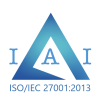The Managed IT Services landscape is quickly evolving. Driven by the continuous progress in technology and the ever-increasing business demands, this transformation is marked by the integration of artificial intelligence (AI), the adoption of edge computing, and an enhanced focus on cybersecurity. In this article, we will deep dive into the top trends shaping the future of Managed IT Services in 2024 and how businesses can leverage these trends to stay ahead of the curve.
Managed IT Services Trends 2024
1. Artificial Intelligence and Machine Learning Integration
AI and ML have become more than just buzzwords; they are vital components of Managed IT Services. These innovations enable predictive maintenance, routine task automation, and advanced analytics. By harnessing the power of AI and ML, businesses can achieve higher ROI and make informed decisions.
- Predictive Maintenance: Smart AI algorithms analyze data from multiple sources to foresee potential system failures, allowing for proactive maintenance and reducing unplanned downtime.
- Automation: Daily tasks like software updates, backups, and security checks can be automated. It frees up the IT workforce to focus on business-critical tasks.
- Advanced Analytics: Machine Learning (ML) models can analyze big data to provide insights into performance, customer behavior, and potential cyber threats.
2. Edge Computing
Edge computing is changing data management and processes. By bringing computation and data storage closer to the data source, edge computing minimizes latency, enhances response times, and improves the user experience. This trend is especially useful for industries requiring real-time data processing. These sectors may include healthcare, manufacturing, and autonomous vehicles.
- Minimal Latency: Processing data at the edge drastically reduces the time it takes to travel to a central data center and back. This paves the way for faster responses.
- Enhanced Cybersecurity: Another advantage of this managed it services trend is reduced risk of interception during transmission, thereby fortifying security.
- Scalability: Edge computing enables businesses to scale their operations without investing heavily in centralized infrastructure.
3. Cybersecurity Focus
With increasing cyber threats, cybersecurity remains a top priority when it comes to Managed IT Services trends. MSPs are now offering robust cybersecurity solutions such as advanced threat detection, endpoint protection, and incident response services.
- Advanced Threat Detection: Leveraging the power of AI and ML, managed IT service providers can detect anomalies and potential threats in real-time, allowing for immediate action.
- Endpoint Protection: With multiple devices connected to networks, securing every endpoint is essential. Managed IT Services offer complete endpoint security to safeguard businesses against sophisticated cyber attacks.
- Incident Response: When a security breach occurs, having a well-defined incident response plan in place is crucial. MSPs provides expertise and resources to quickly contain and mitigate the impact of such incidents.
4. Cloud-Native Technologies
The shift towards cloud-native technologies continues to gain momentum. These technologies offer great flexibility, scalability, and resilience, allowing modern-day businesses to deploy and manage applications more efficiently.
- Kubernetes: This open-source platform helps in automating the deployment, scaling, and operation of application containers, making it complex application management easier.
- Microservices: Breaking down apps into smaller, independent services makes it easy to maintain and update quickly.
- Serverless Computing: This mode assists businesses in running the applications without managing the underlying infrastructure. This Managed IT Services trends significantly reduces operational complexity and costs.
5. Unified Communications as a Service (UCaaS)
Unified Communications as a Service is changing the way businesses communicate and collaborate. By incorporating communication tools such as voice, video, messaging, and conferencing into a single platform, UCaaS enhances productivity and streamlines workflows.
- Seamless Integration: UCaaS platforms work with existing business apps to enable a seamless communication experience.
- Scalability: As businesses grow, this IT trend can easily scale to accommodate more users and additional features.
- Cost Optimization: By consolidating communication tools into a single platform, businesses can reduce costs associated with maintaining multiple systems.
6. Sustainability and Green IT
With the increasing focus on environmental concerns, businesses are investing in sustainability and green IT practices. Managed IT Services are play an important role in helping companies reduce their carbon footprint and adopt eco-friendly technologies.
- Energy-Efficient Data Centers: MSPs are focusing heavily on energy-efficient data centers that utilize renewable energy sources.
- E-Waste Management: Complete disposal and recycling of electronic waste are vital for reducing negative environmental impact.
- Sustainable Practices: Embracing practices like virtualization and cloud computing minimizes or even eliminates the need for physical hardware. This leads to lower energy consumption and reduced greenhouse gas emissions.
7. Remote Work
Remote work has become a constant for many modern-day organizations. Managed IT Service Providers are innovating support remote workforces with solutions that ensure seamless connectivity, security, and collaboration.
- Virtual Desktop Infrastructure (VDI): It provides remote workforces with secure access to their computers from anywhere int the world, significantly increasing productivity and security.
- Collaboration Tools: Tools like Microsoft Teams and Slack ease communication and collaboration among remote teams.
8. Blockchain Technology
Blockchain is entering Managed IT Services as well, offering foolproof security, transparency, and efficiency. Its applications range from secure data sharing to smart contracts and supply chain management.
- Secure Data Sharing: Blockchain’s decentralized nature ensures that data is securely shared and cannot be tampered with.
- Smart Contracts: These self-executing contracts automate and enforce agreements, reducing the need for intermediaries.
- Supply Chain Management: Blockchain provides real-time visibility into supply chains, improving traceability and accountability.
Embrace the Future with Managed IT Services
The trends shaping Managed IT Services in 2024 are driven by the need for greater efficiency, security, and sustainability. By harnessing the advancements in Artifical Intelligence, edge computing, cloud-native technologies, and more, businesses can stay competitive and agile in an ever-changing landscape.
Looking to stay ahead of these IT services trends and ensure your infrastructure is future-proof? Consider partnering with RTCS. With expertise in the latest technologies and a focus on delivering customized solutions, RTCS Managed IT Services can help you navigate the complexities of the digital age and achieve your business goals.
Get in touch with us today!
Read More: Microsoft Power Apps for Accelerated Development and Time to Market
 We're Hiring
We're Hiring


